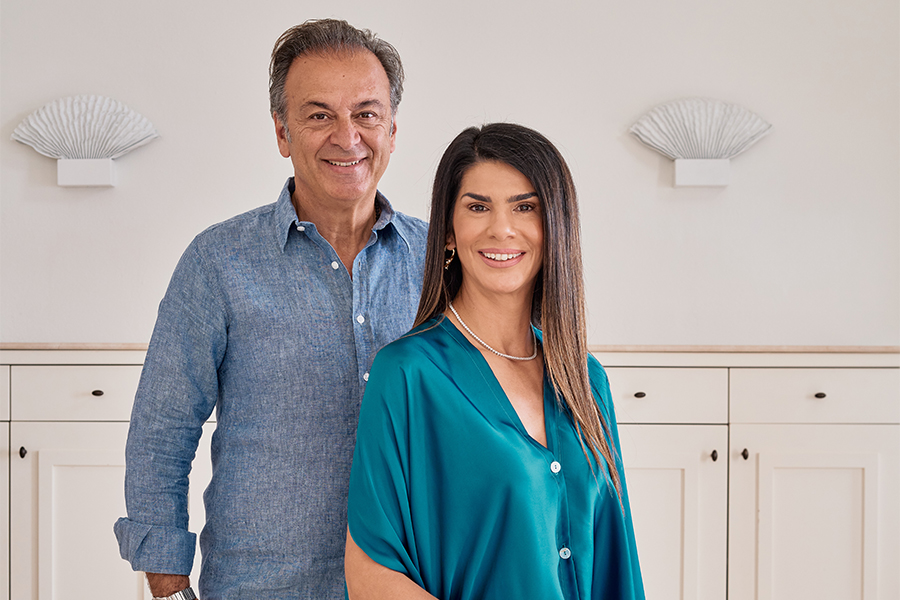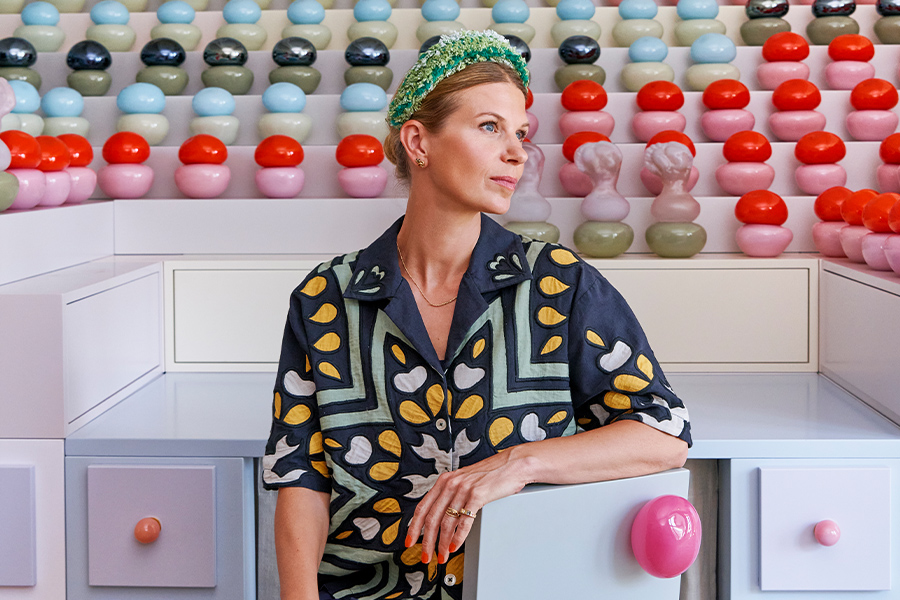Since launching Lucques in 1998 with partner and chef Suzanne Goin, how has the Los Angeles food scene changed?
Over the last five to 10 years, LA’s interest in food has skyrocketed, and I’ve seen the number of diners grow in sync with the number of new restaurants opening. Many people are relocating to LA from other major cities, and this influx has added to the culture in general. The streets are more vibrant than I’ve ever seen them.
What do you attribute to your thriving partnership with Goin?
Suzanne and I have been successful in part because we both like and respect each other. We were raised very much alike and, as a result, have the same values and approach things from an almost identical perspective. We tend to agree on everything, so working together is very natural.
When you opened a.o.c in 2002, the shared-plate concept was revelatory in the F&B scene. How did the idea come about?
Suzanne and I used to go out to dinner together and sit at the bar ordering appetizers and food we could share. We loved being able to try a number of different dishes and experience a chef’s full range. We [wanted to open] a restaurant that would allow us to fulfill our creative desires and allow our guests to experience a broader range of food and wine in one sitting. This was something completely unheard of when we opened. From the number of restaurants around the country using this same format now, I can say it definitely worked.
How important is design to your restaurants?
We’ve always collaborated with established designers like [LA-based] Barbara Barry, who designed Lucques in 1998. [She] also designed the first incarnation of a.o.c.; though, when we moved a.o.c. in 2013, we brought in Claire Stansfield, a Los Feliz-based designer. For Tavern and our Larders, we enlisted Jeffrey Alan Marks, who has an amazing sense of color and texture.
What are the challenges with handling the F&B operations for live music venue Hollywood Bowl?
It’s pretty massive, with three full-service restaurants, foodservice to 3,200 box seats, three marketplaces, concession stands, and catering. It can be a great deal of pressure, but we try to keep our heads down and focus on the work. The post-service concerts and fireworks have a way of making the hard work feel much less painful.


